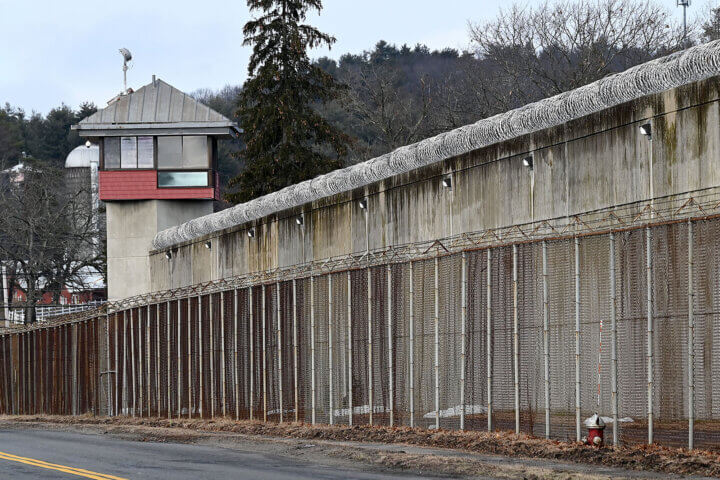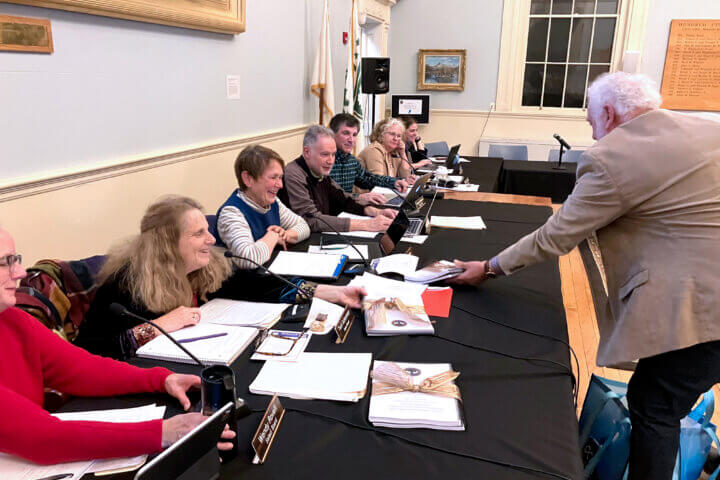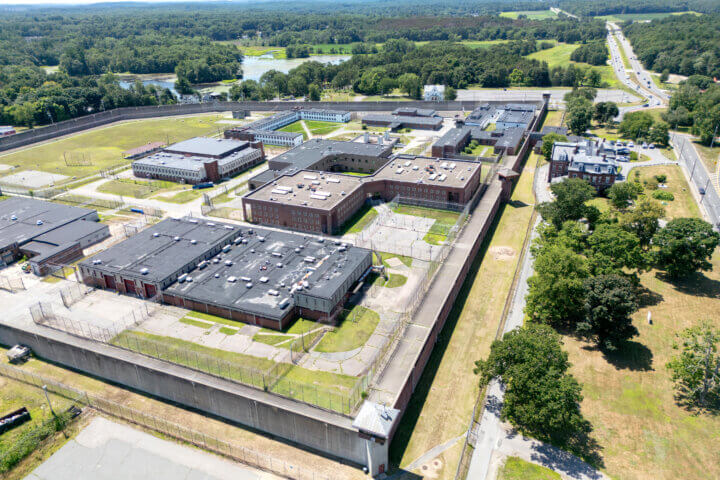By Erin Tiernan — Erin@concordbridge.org
Concordians don’t want to see fast food joints, strip malls, or “big box” stores as part of the redevelopment of the MCI-Concord property, a state-led survey of 317 residents and stakeholders found.
“Tons of commercial development will produce even more traffic and put stress on town roads,” said one resident in the anonymized survey results.
And one Concord student feared the town could ding its charm by “plastering the site with buildings of cookie-cutter design and cheap material.”
Crossing things off the list
Finding out what Concordians consider a no-go for the 51-acre prison site is an important step in the redevelopment planning, helping to narrow the options in a scenario that begins with everything on the table, officials said.
“It’s always easier to start [by] saying what you don’t want to see than to thoughtfully start thinking about what you do want to see,” Town Planner Elizabeth Hughes recently told The Concord Bridge.
The 146-year-old lockup shut down in June, and the state is preparing to sell land for redevelopment. Gov. Maura Healey has said she wants housing built there as her administration scrambles to lower costs in Massachusetts, one of the nation’s priciest places to live.
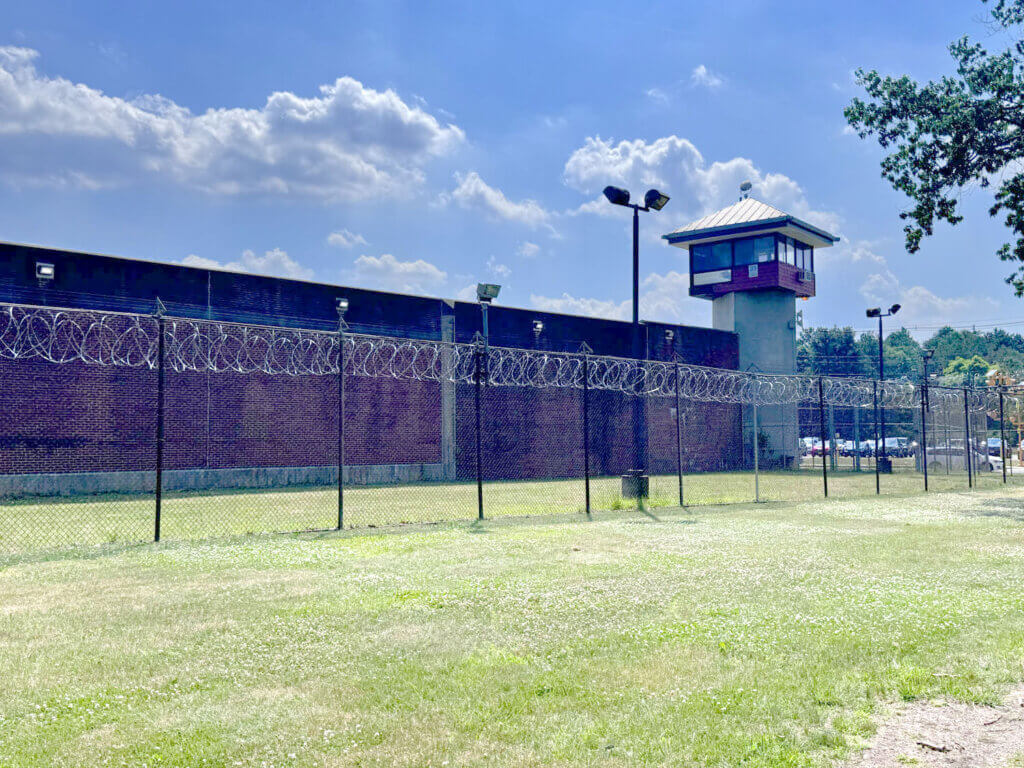
The town has a say in what eventually gets built at the site. Concord controls the zoning that regulates the density and mix of residential, commercial, and retail buildings that will be allowed.
Concord’s delegation also laid out in legislation the general redevelopment planning process and required the state to work in partnership with the town.
Filling in a ‘blank slate’
The property is essentially a “blank slate,” said MCI Concord Advisory Board co-chair Dan Gainsboro.
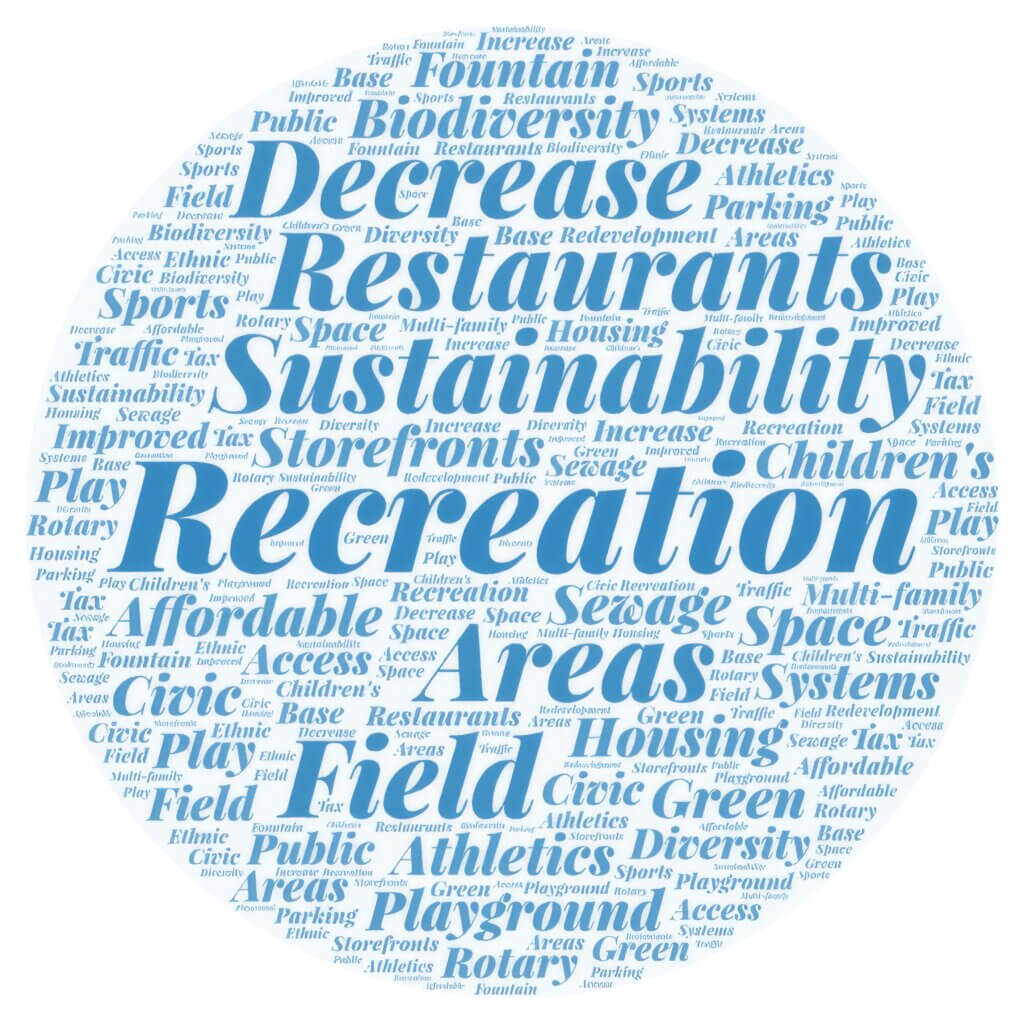
Residents do have a general sense of the buildings they’d like to see. Results from the survey found “common themes” around the desire for affordable and workforce housing and creating a neighborhood that includes supermarkets, restaurants, cafés, small businesses, offices, and even a hotel.
Addressing and improving the Route 2 rotary was also a chief concern. Others said they want access to nature and recreation.
One resident and business owner spoke of a “community recreation center to support athletics indoors and outdoors, maybe in addition to affordable housing.”
Each idea comes with its own potential mix of opportunities and consequences, Gainsboro said.
‘Scenario building’ is key
Denser housing could strain Concord’s already-burdened wastewater and electric utilities. It could also mean larger public school class sizes. New stores and restaurants could snarl traffic if the state doesn’t factor in upgrades to the crash-prone Route 2 rotary, which borders the property.
“Most people don’t have a planning background and don’t have the ability to visualize these things,” Gainsboro said. “That’s not a knock on people.”
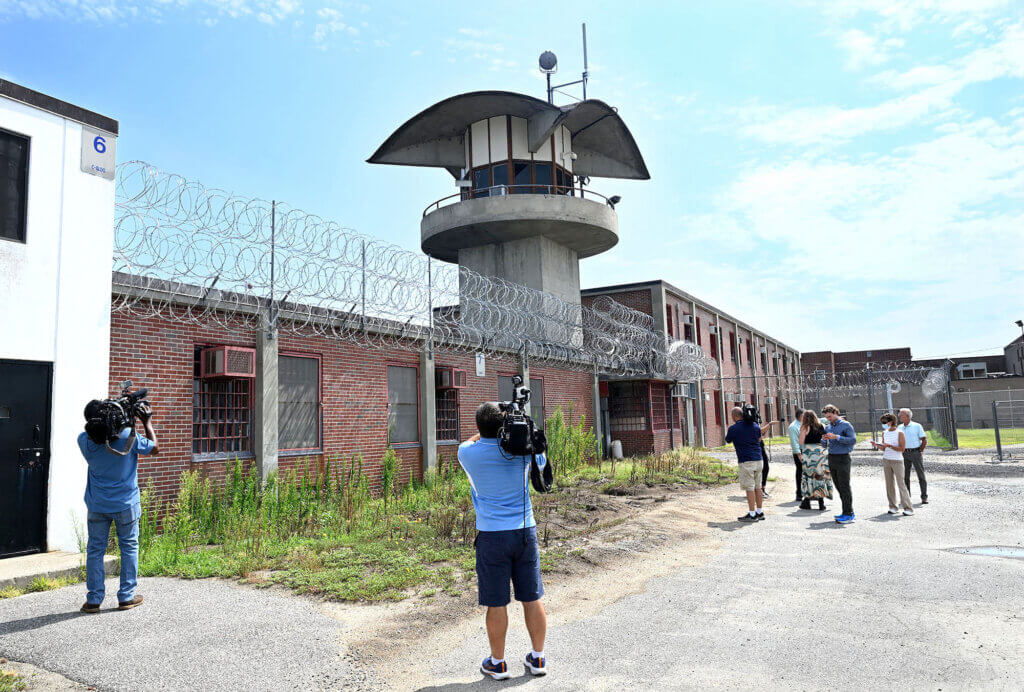
Select Board clerk Mark Howell, who also sits on the MCI-Concord Advisory Board, said it’s time for the committee to flesh out some of the community’s interests with the help of planners.
“People are much better at critiquing than they are at creating out of whole cloth,” he said.
Planning experts call this “scenario building,” where the impacts of various ideas are explored. This can range from traffic and the financial implications of increasing the tax base to the effect on community services like water, sewer, schools and electricity.
“Each different use has different impacts and benefits,” Hughes said, noting the opportunity is an exciting time for Concord. “I think all the uses should be thought about, all the impacts and benefits should be thought about, and we should have a really good community conversation about what the community wants.”
The MCI Concord Advisory Board is in the beginning phases of conducting town-led community outreach. Members will present a status update and host a community discussion at the League of Women Voters of Concord-Carlisle’s First Friday meeting at 10 a.m. on November 1 at the Concord Free Public Library, 129 Main Street. The meeting will also be livestreamed.



